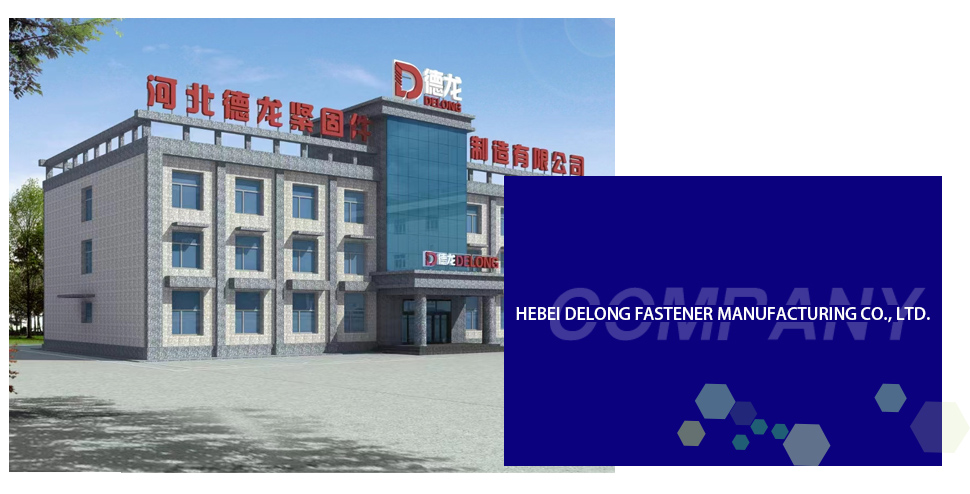flat washer din exporter
The Importance of Flat Washers in Industrial Applications
Flat washers, often overlooked in the vast domain of fasteners, play an essential role in securing and distributing loads within various mechanical assemblies. Among the numerous standards defining flat washers, the German DIN (Deutsches Institut für Normung) standard is one of the most recognized, ensuring both quality and performance across a variety of industries. As an essential component in construction, automotive, aerospace, and numerous manufacturing sectors, flat washers conforming to DIN specifications are indispensable.
Understanding Flat Washers and DIN Standards
A flat washer is typically a thin, disc-shaped plate with a hole in the center, designed to distribute the load of a screw or bolt. Made from different materials—including metals, plastics, and composites—flat washers are engineered to enhance the performance of fastening systems by providing a smooth surface that reduces friction and minimizes surface damage.
The DIN standard encompasses various sizes and specifications for flat washers, ensuring uniform quality and compatibility across Europe and beyond. DIN washers are categorized primarily by their inner and outer diameters and thickness, which allows engineers and designers to choose the right washer for their specific application. Common types include DIN 125, DIN 903, and DIN 9021, each designed for particular use cases and load requirements.
The Role of Flat Washers in Mechanical Assemblies
In mechanical assemblies, flat washers serve several critical purposes
1. Load Distribution Flat washers help distribute the load across a larger surface area, reducing the risk of damaging the materials being fastened. This is particularly important in soft materials such as aluminum or plastics, where concentrated loads can lead to deformation or failure.
2. Preventing Wear and Corrosion By providing a barrier between the fastener and the surface, flat washers can help prevent wear and corrosion. This is especially true when using washers made from corrosion-resistant materials, which is vital in harsh environments such as marine or chemical processing applications.
3. Vibration Resistance Flat washers can also assist in absorbing vibrations generated by machinery and equipment. This helps maintain the integrity of the assembly, reducing the chances of loosening over time, which is critical in high-stress applications.
flat washer din exporter

4. Sealing Properties While primarily used for load distribution, certain flat washers, especially those designed with specific coatings or made from elastomeric materials, can also provide sealing capabilities, preventing the ingress of contaminants and fluids.
Exporting DIN Flat Washers
The global demand for DIN flat washers has seen significant growth, with countries increasingly relying on these components for their manufacturing needs. Exporters of DIN flat washers must adhere to stringent quality assurance processes to ensure their products meet international standards. This is not only crucial for compliance but also for customer trust and reliability.
Exporting DIN flat washers involves several key steps
1. Sourcing Quality Material The first step is procuring quality materials that meet the necessary standards for durability and performance. This often involves partnerships with reputable suppliers who provide raw metals or other components.
2. Manufacturing Process Once materials are sourced, the manufacturing process must be monitored closely. This includes precision machining, heat treatment, and finishing processes, all of which contribute to the final product's quality.
3. Quality Control A rigorous quality control system is essential. Exporters must conduct regular inspections and tests to ensure that their flat washers comply with DIN specifications and can withstand the operational demands of various applications.
4. International Regulations Finally, understanding and adhering to international regulations and trade agreements is critical for successful export operations. This includes proper documentation, tariffs, and shipping protocols to ensure quick and efficient delivery to customers worldwide.
Conclusion
Flat washers, especially those conforming to DIN standards, are fundamental components in industrial applications. Their ability to distribute loads, prevent corrosion, absorb vibrations, and seal against contaminants makes them invaluable in mechanical assemblies across various sectors. As demand for quality fasteners continues to rise, the scope for exporters of DIN flat washers remains promising, provided they maintain high standards of quality and adhere to the global marketplace's evolving needs. Understanding the importance and function of these seemingly small components can significantly impact the longevity and reliability of engineering projects around the world.
-
Top Choices for Plasterboard FixingNewsDec.26,2024
-
The Versatility of Specialty WashersNewsDec.26,2024
-
Secure Your ProjectsNewsDec.26,2024
-
Essential Screws for Chipboard Flooring ProjectsNewsDec.26,2024
-
Choosing the Right Drywall ScrewsNewsDec.26,2024
-
Black Phosphate Screws for Superior PerformanceNewsDec.26,2024
-
The Versatile Choice of Nylon Flat Washers for Your NeedsNewsDec.18,2024










